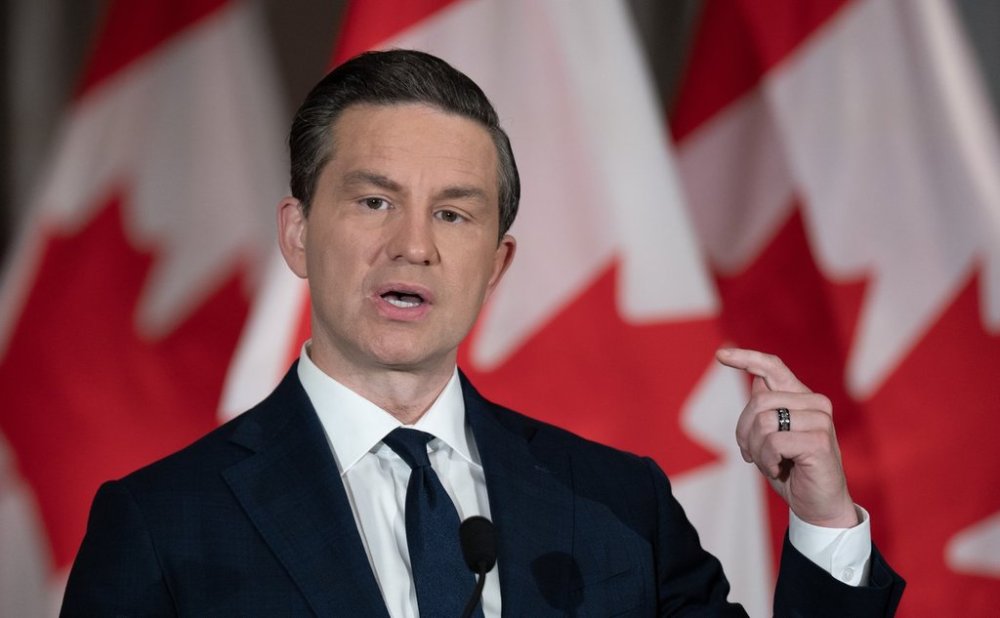Alta. byelection messy process for Poilievre
Advertisement
Read this article for free:
or
Already have an account? Log in here »
We need your support!
Local journalism needs your support!
As we navigate through unprecedented times, our journalists are working harder than ever to bring you the latest local updates to keep you safe and informed.
Now, more than ever, we need your support.
Starting at $15.99 plus taxes every four weeks you can access your Brandon Sun online and full access to all content as it appears on our website.
Subscribe Nowor call circulation directly at (204) 727-0527.
Your pledge helps to ensure we provide the news that matters most to your community!
To continue reading, please subscribe:
Add Brandon Sun access to your Free Press subscription for only an additional
$1 for the first 4 weeks*
*Your next subscription payment will increase by $1.00 and you will be charged $20.00 plus GST for four weeks. After four weeks, your payment will increase to $24.00 plus GST every four weeks.
Read unlimited articles for free today:
or
Already have an account? Log in here »
The Aug. 18 vote in the Alberta riding of Battle River-Crowfoot is more than a byelection to fill a vacant seat in Parliament. It is, for all intents and purposes, a referendum on one man’s relevance in Canadian politics.
That man is of course Pierre Poilievre, the Conservative Party of Canada leader who failed in his re-election bid for the Ottawa-area constituency of Carleton, which he lost to Liberal Bruce Fanjoy in last April’s federal election.
Despite having increased the CPC’s seat count (from 120 to 144) and share of the popular vote, Poilievre’s electoral failure was twofold, losing his own seat as well as not delivering the Conservative majority that was, mere months earlier, considered a foregone conclusion.

Having successfully harnessed Canadians’ dissatisfaction with then-prime minister Justin Trudeau’s government, Poilievre had built such an overwhelming lead in public-opinion polls that it was assumed the next election would propel the CPC to a massive majority.
But the smooth-paved path to a Conservative coronation was suddenly made very bumpy, first by Trudeau’s resignation and second by a sudden shift in Canadian attitudes. For the past half-decade, Poilievre’s strategy for attracting would-be voters into the CPC tent involved not much more or less than mirroring whatever seemed to be working for Donald Trump south of the border.
Insults, name-calling, concocting alternate-reality “facts,” demonizing opponents and the media, pandering to the extreme fringes of the right … you name it; if it worked for Trump, Poilievre seemed eager to give it a go.
And it worked well — until it didn’t. Trump’s tariff threats and unhinged musings about annexing Canada as the 51st U.S. state did not sit well here; rather abruptly, trying to sound and act like Trump became the absolute worst thing for a Canadian politician to do.
Poilievre, trapped in the Trump-lite image he had worked so diligently to create, saw his prime ministerial aspirations evaporate. On election night in Carleton — a Conservative stronghold he had held since 2004, through seven federal elections — Poilievre lost by more than 4,500 votes.
The CPC remained in opposition; leader Poilievre was on the outside, looking in and looking for a way back into relevance.
He and the party decided the most direct route back to Parliament Hill runs through Battle River-Crowfoot, a riding so deep Tory blue that incumbent CPC candidate Damien Kurek received 82.8 per cent of the votes cast last spring.
At the first available opportunity, Kurek resigned so Poilievre could run in his place. The polling agency 338Canada currently puts the odds of Poilievre winning the byelection at 99 per cent.
But that doesn’t mean it won’t get messy.
Thanks to the mischief-inclined Longest Ballot Committee, more than 200 candidates have registered, forcing Elections Canada to create special ballots. And some in the rural constituency are unhappy that a “parachute” candidate — one who’s now touting his deep Alberta roots despite having left oil country behind more than two decades ago — is being foisted on them rather than the true-blue Albertan they chose as their MP.
At a candidates’ forum on Tuesday night, military veteran and independent candidate Bonnie Critchley — a self-described staunch conservative who voted for Kurek and views his exit to make room for Poilievre as cynical — put it this way: “I firmly believe that Mr. Poilievre is too busy with his personal ambitions to give a rat’s backside about us.”
Time will tell how many more in this sparsely populated patch of eastern Alberta agree. Poilievre’s reputation, and relevance, are on the line.
Anything less than a massive landslide win will surely be viewed as a second consecutive ballot-box repudiation.
» Winnipeg Free Press
